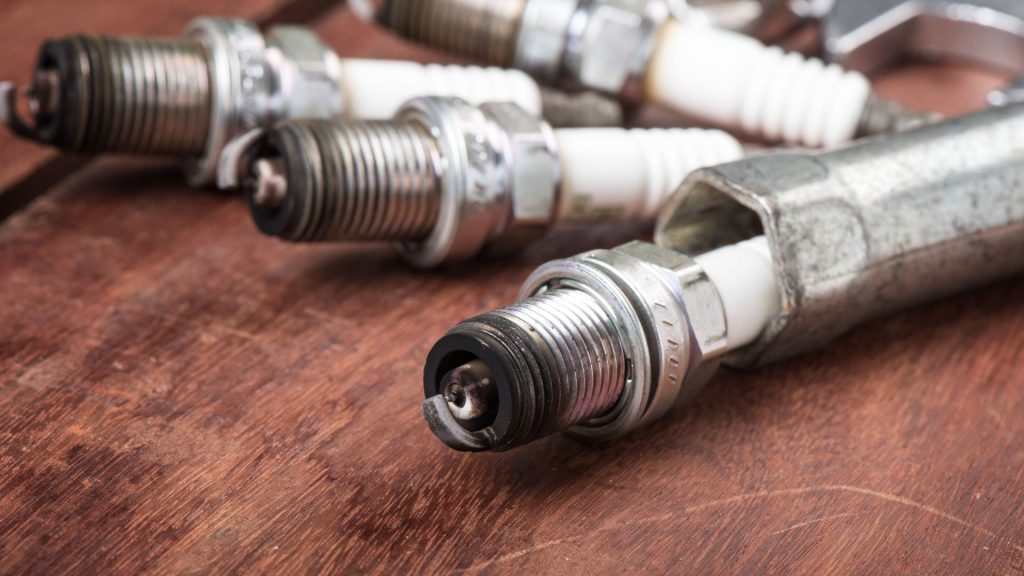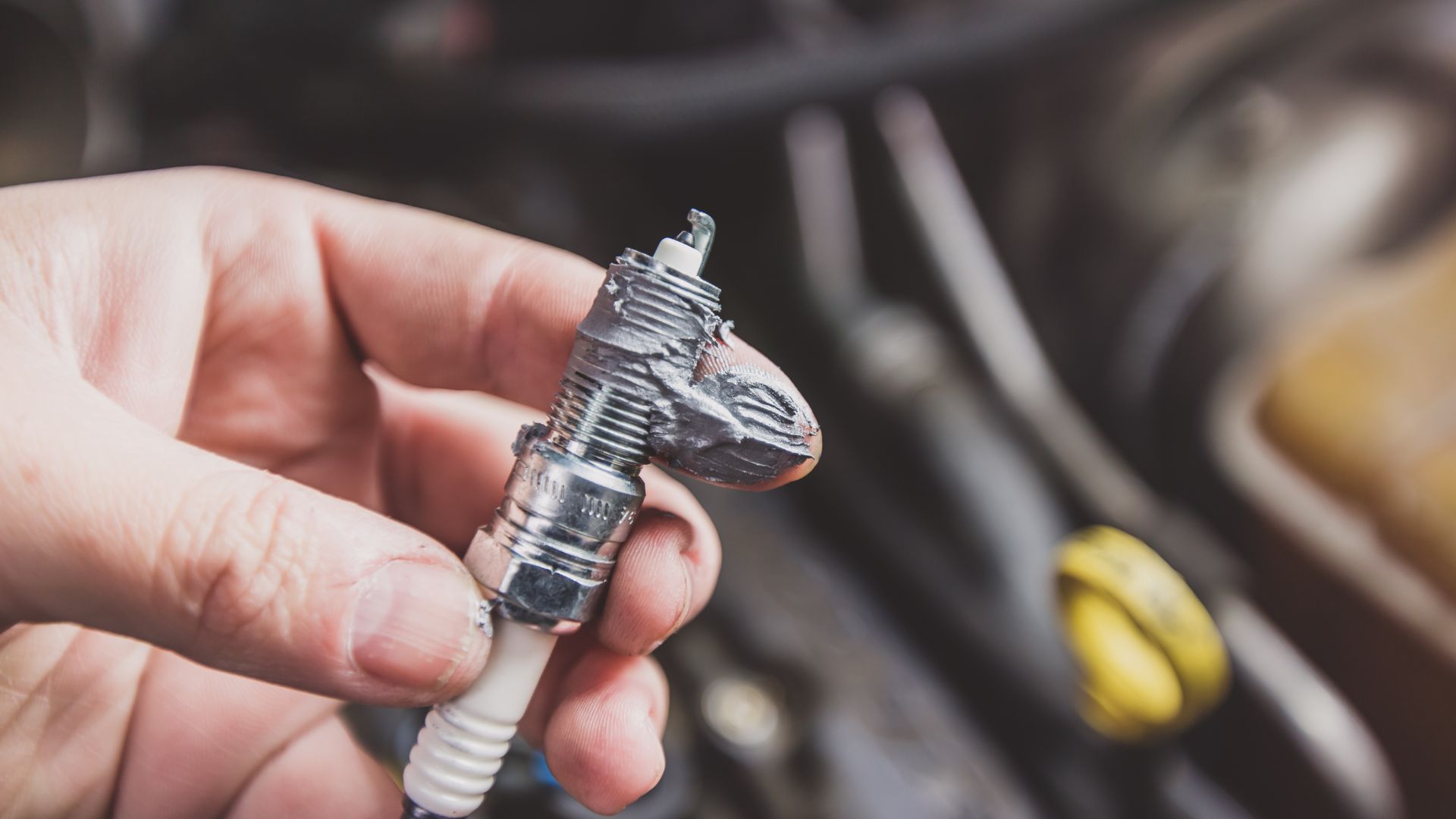.According to a 2018 paper in Mobility and Vehicle Mechanics (Rosen Hristov, Krasmir Bogdanov, Radostin Dimitrov), various factors influence the internal combustion an engine uses to move a car, including the fuel type, quality of the spark, and the composition of the air/fuel mixture.
The spark plugs also get a mention because a car cannot operate without them. Shaking is one of the many symptoms you will observe once the spark plugs fail.
Can Spark Plugs Cause Car To Shake?
If you don’t notice any shaking while driving the vehicle, wait until it idles at a stop sign. The vibrations will become more evident because the combustion process is burning fuel unevenly due to defective spark plugs. The vibrations may worsen once you start moving, especially if you maintain a low speed.
The vehicle’s inability to burn the fuel evenly and efficiently will result in misfires. Misfires are dangerous because they kill the power, causing the car to halt. This will only last a second or less, but the interruption is enough to shake the vehicle. Expect the muffler to produce a loud explosive noise.
Misfires are a source of concern because they limit your control. The explosions may startle you at a crucial moment in traffic, leading to an accident. Fortunately, misfires are difficult to ignore, and the average driver will attend to them quickly before they harm the engine’s components.
Is your vehicle truly shaking? Is it more accurate to say that the car is starting and stopping continuously? This sort of jerky acceleration and motion is just as dangerous as a misfire before it disrupts your control.
And if it occurs during a critical moment on the road, an accident may occur. Again, bad spark plugs have created a disruption in the combustion process. The ignition rate is wrong. Or maybe you have too much air sucking into the engine. You won’t know the exact cause until you talk to a mechanic.
Find Out Why The Vehicle Is Shaking. Are You Sure The Spark Plugs Are To blame?

Have you eliminated all the other potential culprits? Cars can shake for various reasons, including:
1). Vehicle Lateral Shake
SAE International published a paper that describes ‘Vehicle Lateral Shake’ as the shudder consumers observe when a car takes off. That shudder may persist if they maintain a low speed during this initial period. This so-called take-off shudder happens at 20 to 30km/h. You can’t blame a vehicle’s lateral shake on bad spark plugs.
2). Loose Or Worn Out Belt
Loose or worn-out belts generate a rattling noise. Sometimes, that rattling noise escalates into vibrations. In other cases, the rattling makes people believe the vehicle is shaking.
3). Worn Out Wheels and Tires
Do you have uneven wheels? What about the tires? Are they worn out? Wheels and tires produce vibrations because of wear, tear, and poor alignment and balancing. Routine maintenance can identify all these problems and more.
4). Damaged Motor Mount
The motor mount absorbs vibrations. Therefore, if it wears out or incurs damage, you can’t trust the mount to support the engine efficiently while you drive. It needs replacement.
5). Defective Brakes
When was the last time you inspected the brake system? Start with the discs and rotors. Is the thickness even, or can you see variations? What about the brake disc? Is it damaged or warped? Do you see wear and tear?
The caliper is another concern. You don’t want this component to stick to the brake disc. If it does, the vibrations in the steering wheel may become a distraction. The drums are equally concerning. They will warn you by squealing whenever you use the brake pedal.
You can’t diagnose the brake system alone. This is a challenging undertaking that requires a technician to take this section of your vehicle apart.
6). Faulty Steering
A vehicle that shakes when you make a turn has bad tie rod ends. If you only notice the shaking while driving straight, you have problematic ball joints. If the power steering fluid is leaking, the power steering is at fault.
As you can see, you have plenty of variables to consider. You can’t blame the spark plugs without eliminating other possibilities.
Ultimately, Vibrations That Originate From Faulty Spark Plugs Have One Primary Solution.
You must change the spark plugs. But what if you change the spark plugs, and the shaking continues because the spark plugs are not the problem? You don’t want to waste money on new spark plugs you don’t need. Tech Tips has posted pictures of compromised spark plugs.
You can use those pictures to determine whether or not your spark plugs have a fault. For instance:
- Do you see sooty deposits on the spark plugs? Are they caked in soot? This happens because of a dirty air filter, excessively rich air/fuel mixture, bad temperature sensor, etc.
- Do you see oil on the spark plug? Either you have a leak somewhere, or you added too much oil. A leak will introduce oil to other sections of the engine. In other words, the spark plugs are the least of your worries. Although, you can still expect misfires and shorting.
- Do you see a brownish/yellowish glaze? You have problematic additives in the oil and fuel. The glazing is the deposits from those additives.
- Do you see heavy deposits on the tip? The oil and fuel have additives that produce slag-type deposits.
These are just a few of the symptoms you will observe when a spark plug develops a defect. Some spark plugs have fully or partially melted electrodes because of a thermal overload. You may notice deposits between the middle electrode and insulator because of mechanical damage.
If your spark plug resembles any of these pictures, you can safely conclude that it has a fault. Some mechanics can remove the soot, corrosion, and residue. But you are better off getting new spark plugs. If defective spark plugs caused the shaking, a new set of spark plugs will solve the problem.
Related post:

